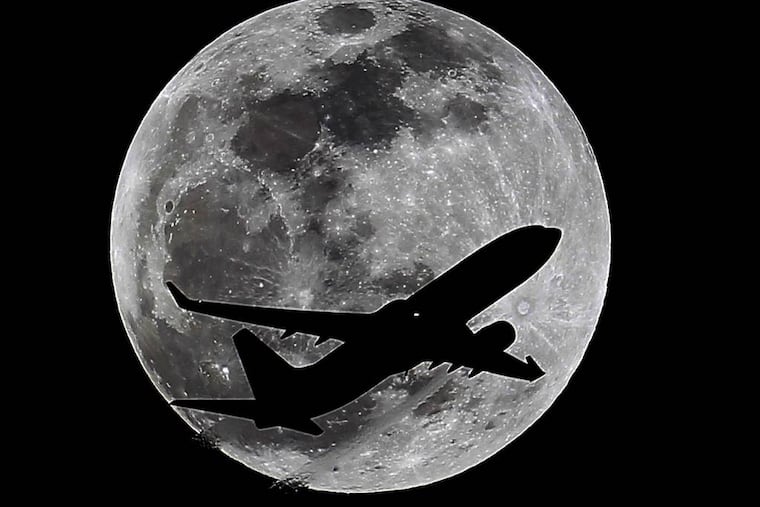After rough winter, outlook good for airlines
Airlines will begin reporting first-quarter earnings next week, and despite a rough winter most expect strong profits this spring and beyond.

Airlines will begin reporting first-quarter earnings next week, and despite a rough winter most expect strong profits this spring and beyond.
The harsh weather forced newly merged US Airways and American Airlines to scrub more than 34,000 flights in the first three months of this year, whacking quarterly revenue by $115 million and lowering operating profit by about $60 million.
American Airlines Group Inc., formed by the December merger of AMR Corp. and US Airways, revised its operating margin forecast to 5 percent to 7 percent for last quarter, down from a late January expectation of 6 percent to 8 percent.
Disruptions from snow and ice storms forced U.S. airlines to cancel more than 100,000 flights. "We expect Easter/Passover travel to be robust this year," said airline analyst Helane Becker, of Cowen & Co., in an update.
Delta Air Lines has projected April passenger unit revenue - a key industry measure - will grow 5 percent to 7 percent. "Despite the significant cancellations, we believe most airlines still saw improved year-over-year earnings, with the exception of United," Becker said, adding: "We haven't seen much in the way of fare increases, which is more related to the fact that oil prices have been somewhat stable."
United Airlines canceled 35,000 flights due to inclement weather last quarter, most of them operated by regional partners.
Delta Air Lines said it scrapped 17,000 flights in the latest quarter, erasing $55 million in operating profit and $90 million in revenue.
"The snow and ice storms we saw in February were the worst we have experienced, and led to the highest number of cancellations our industry has seen in more than 25 years," said Robert Isom, chief operating officer at American, in an employee memo.
Passenger "demand trends have steadied in recent weeks," wrote analyst Glenn Engel of Bank of America Merrill Lynch. "Domestic business travel accelerated as the first quarter progressed, but domestic leisure and large corporate international remain sluggish."
Foreign airlines, particularly in Asia and Latin America, have accelerated "international supply" - flights and airplane seats - "adding more than U.S. airlines," Engel wrote.
"Broadly speaking, we feel demand trends are good and we expect highly upbeat commentary on earnings calls," said airline analyst Hunter Keay, of Wolfe Research Inc., in an update.
New safety rules requiring more rest for pilots went into effect Jan. 4, and compounded flight cancellations in bad weather. Weather-related delays eat up the fixed number of hours that pilots are allowed to be on duty.
"The rules came into effect just as the polar vortex happened," said Seth Kaplan, managing partner of Airline Weekly, an industry publication. "Airlines had to deal with both - the weather and then not being able to shift schedules around quite the same as they would have in the past."
"Airlines over the past several years have seen very strong growth in demand, in the kind of fares that they are getting," Kaplan said. "U.S. airlines are doing as well as they have ever done."